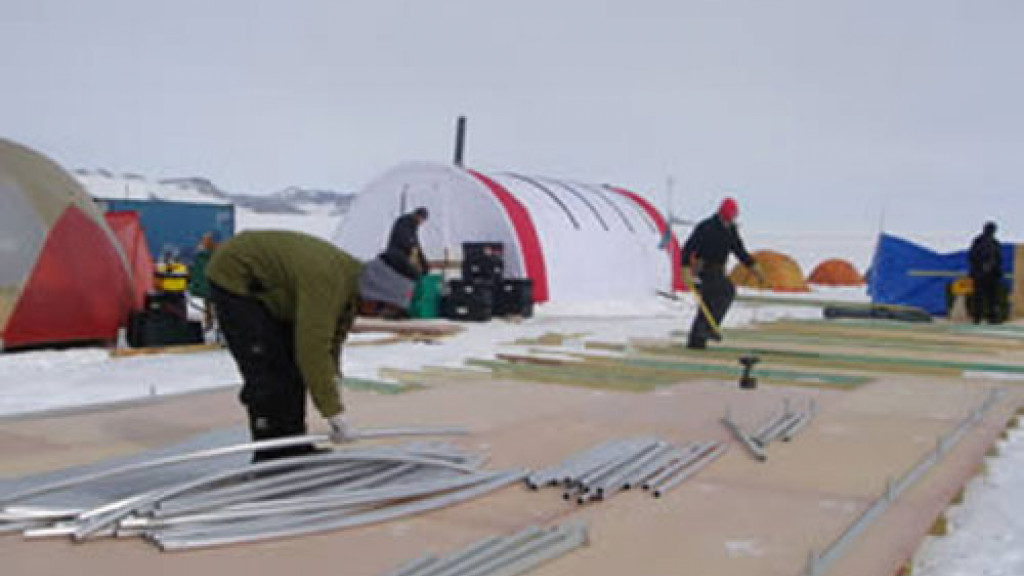BELARE 2007-2008: a comfortable Base Camp
Four new team members have reached Utsteinen Base Camp: Gaëlle, Toto, Daniel and Francis. Twenty-four people are now on site, bringing the team to a fully operational number to complete the first phase of the expedition.
Aboard the plane which flew in yesterday were the last two team members and the 4500 kg of drilling equipment everyone had been waiting for. The phase1 team is now fully operational and complete. The number of people on site will stay the same until the end of December, when the Ivan Papanin ship comes in at Breid Bay with 16 more people and the 120 containers.
As the plane flew in rather late yesterday, the team invited the pilots to stay for dinner...a delicious dinner prepared by Toto and Gaëlle. Toto is a professional Italian cook who decided to close his restaurant in Brussels to come and cook for the Belgian Antarctic expedition. Not only were the pilots appreciative of the food they were served, they were also impressed by the organization and comfort of the base camp. In fact, it seems that everybody who sees the base camp is amazed by its sophisticated arrangements: individual tents, a heated and spacious mess room and a fully equipped kitchen with a hyper modern coffee machine!
Each morning, the weather station at Neumayer gives the weather forecast for the next few days. But the climate changes very little from one day to another. Around noon, temperatures revolve around 0 degrees. This is the most comfortable time of the day. There is no wind, a clear sky and a pleasant sun. Only in the evening does the sun disappear behind the Sor Rondane Mountains until about half past midnight, when it is back in sight! In a few days, only the Utsteinen pyramid will hide the sun for a couple of hours.
Next week, certain team members will take part in a scientific research project of the VUB University (Vrije Universiteit Brussel) entitled "circadian rhythms, physical activity and their influence on sleep-wake regulation during an Antarctic summer expedition". The purpose of this study is to measure the impact on human behaviour of a 24-hour exposure to sunlight. This study aims to demonstrate that the omni-presence of daylight can deregulate normal biological rhythms and cause the body to sleep less.
Overall, the expedition members seem happy and do not regret Belgium's bad weather. On the contrary, they are enjoying the "warm" Antarctic summer!

